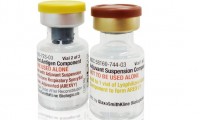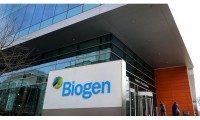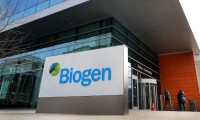-
Bayer pledges $500K in drugs and cash relief to Maui following devastating wildfires
- Source: drugdu
- 188
- August 19, 2023
-
GSK stays a step ahead in RSV vaccine battle as Arexvy becomes available at US pharmacies
- Source: drugdu
- 171
- August 19, 2023
-
Stada in ‘exploratory talks’ about possible sale, CEO says, but nothing is certain
- Source: drugdu
- 112
- August 17, 2023
-
Novartis shares promising phase 3 results for BTK inhibitor in chronic hives
- Source: drugdu
- 116
- August 12, 2023
-
Scleroderma Research Foundation launches clinical trial platform to advance treatments
- Source: drugdu
- 113
- August 4, 2023
-
UK Probes Weight Loss, Diabetes Drugs for Suicidal Ideation and Self-Harm Risk
- Source: drugdu
- 118
- July 28, 2023
-
Biogen, working through a ‘transition,’ plots 1,000 more layoffs by 2025
- Source: drugdu
- 117
- July 27, 2023
-
Biogen to Cut 1,000 Jobs as Part of $1B Cost Savings Plan
- Source: drugdu
- 141
- July 27, 2023
-
Astellas Strikes Another Deal to Expand in Cancer, Partnering With PeptiDream
- Source: drugdu
- 115
- July 27, 2023
-
Bavarian Nordic Falls by RSV Vaccine Wayside After Phase III Failure
- Source: drugdu
- 111
- July 26, 2023
your submission has already been received.
OK
Subscribe
Please enter a valid Email address!
Submit
The most relevant industry news & insight will be sent to you every two weeks.













